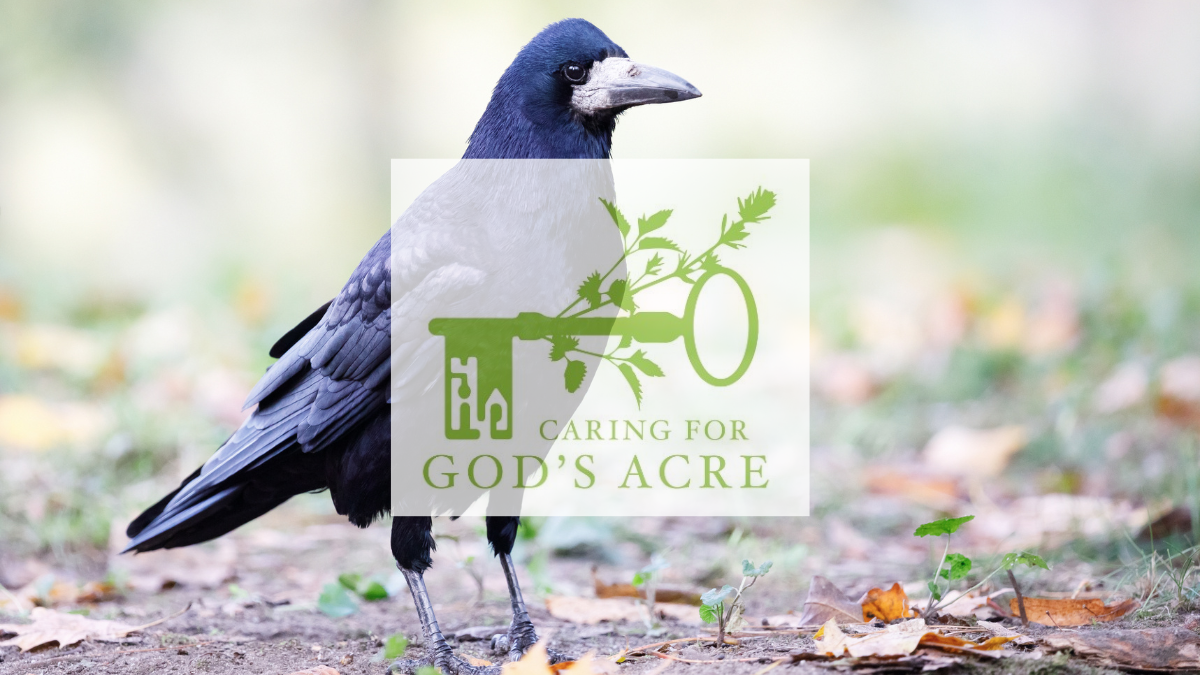
A Parliament of Rooks
Although February usually feels far from spring, it is the month when rooks usually start to build their nests, although sometimes they start in January. Many churchyards contain rookeries, situated within tall deciduous trees and a great deal of fun can be had in watching the antics of the rooks. Rooks make their nests from small branches and twigs and can be seen flying in with suitable material but also pinching particularly nice ones from the neighbours! A winter storm can seriously disrupt this nest building activity and send them back to the beginning with a great deal of chatter and fuss.
Rookeries may contain a few nests or sometimes up to a thousand and, once established, a rookery may last for centuries in the same location. Rooks are sociable and as well as nesting together they often feed in groups, eating a wide variety of foods including invertebrates pulled from the soil by their large, strong beaks. They will also eat fruit, seeds, acorns and grain and can visit garden bird feeders, taking hold of them with their feet rather like a parrot. Mixed flocks of rooks and jackdaws can be seen flying around, calling prior to going to roost. The collective nouns for a group of rooks are a parliament, congregation or clamour!
Rooks and crows can appear quite similar until you look and listen closely. A rook has a domed forehead and greyish face, its leg feathers give it ‘baggy trousers’. Crows are sleeker, tend to nest singly and are often seen in twos or threes but rarely in larger flocks. Both birds have a cawing call, but crows have a harsher note and tend to repeat the call three times, whilst rooks use a wider variety of sounds and pitches including some clicks and wheezing sounds. Rooks and crows belong the to Corvid family which also includes ravens, jays, magpies and choughs. Take a look at the Caring for God’s Acre website for a Spotter’s Guide to Corvids HERE.
Please let us know if you have a rookery within your local churchyard or cemetery and take a moment to think how many generations of rooks may have nested there.
All the best,
Diocesan Churchyard Environmental Advisor
www.caringforgodsacre.org.uk - individuals and groups in the diocese receive 20% members discount on all CfGA materials. Use the discount code diomem22
